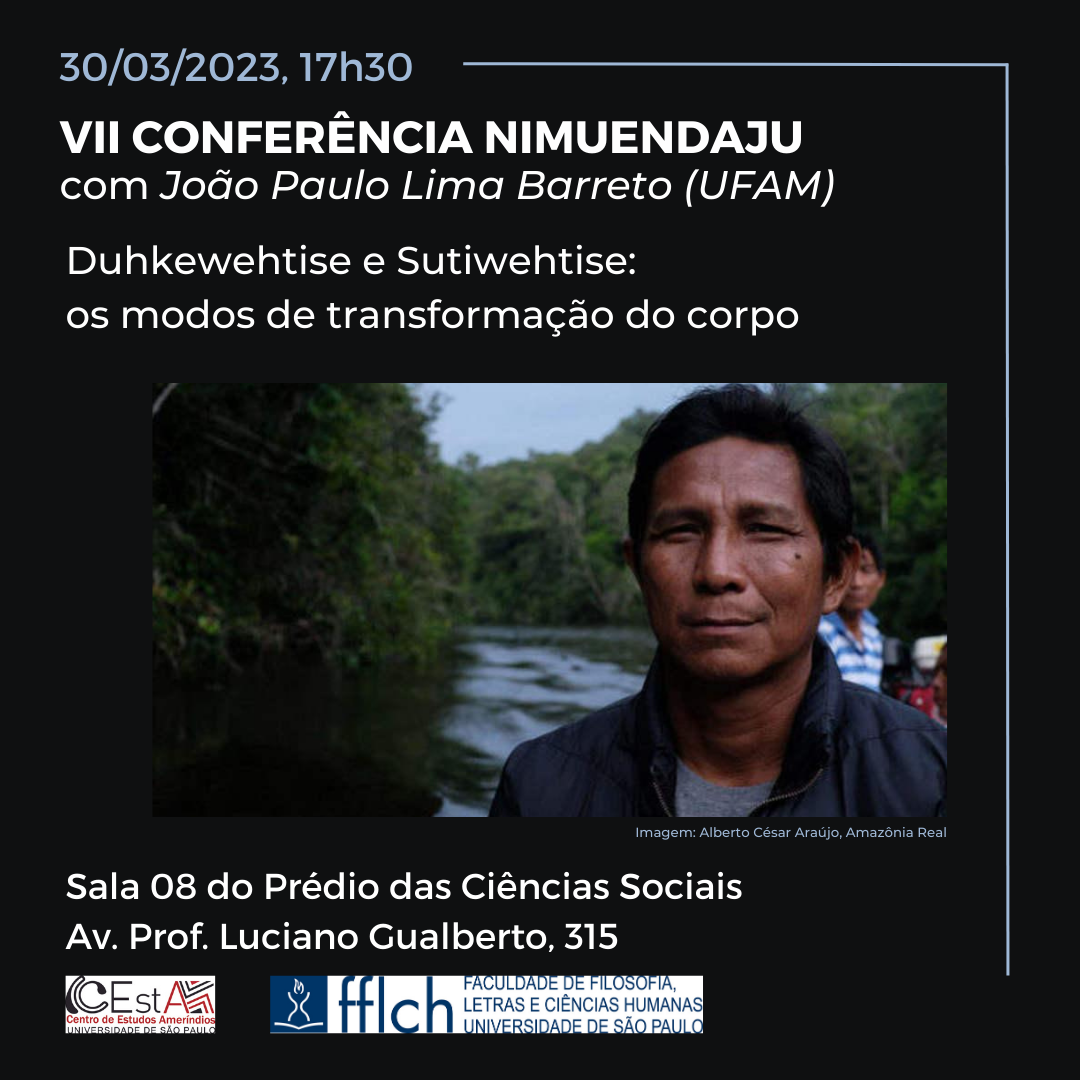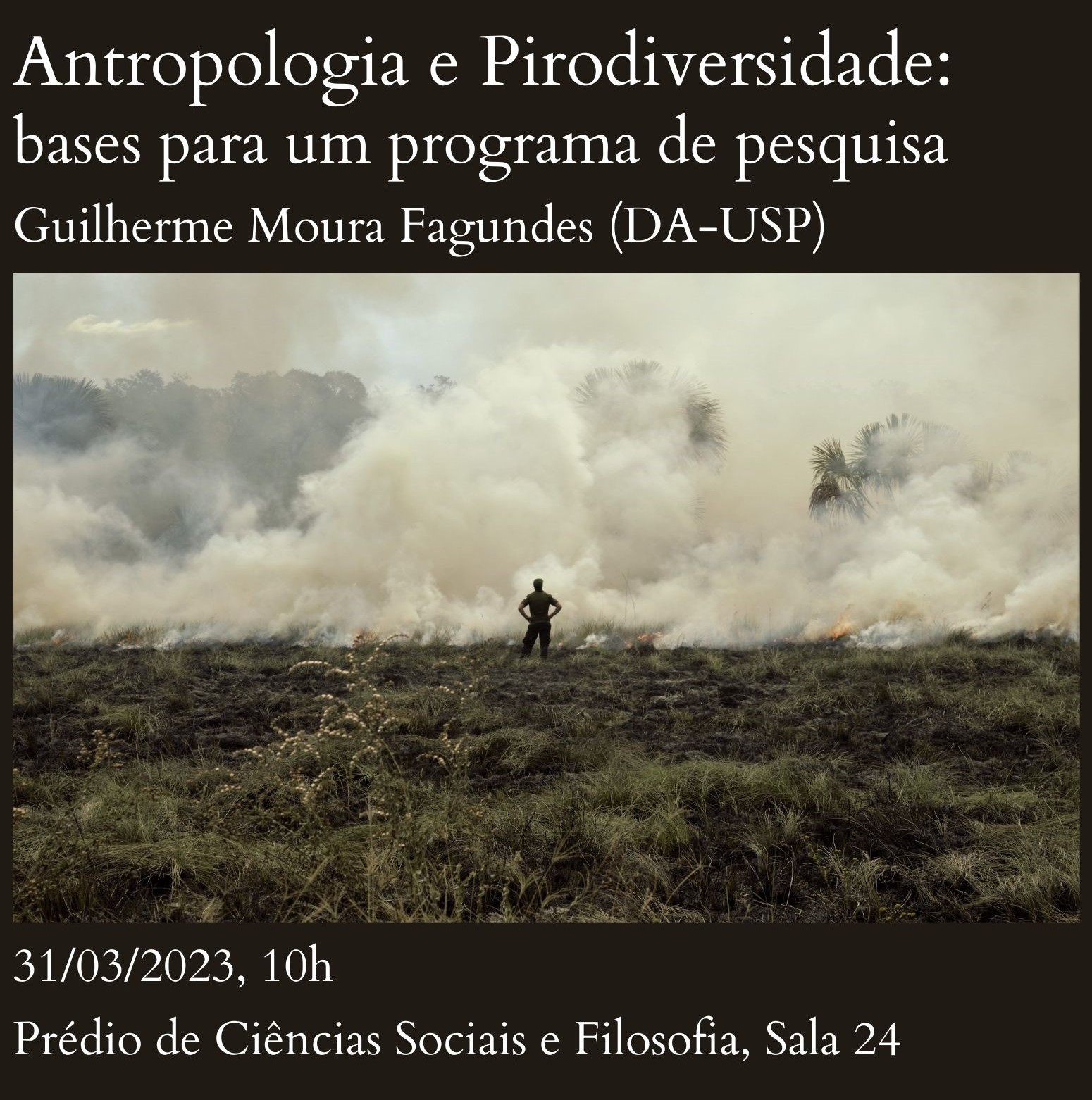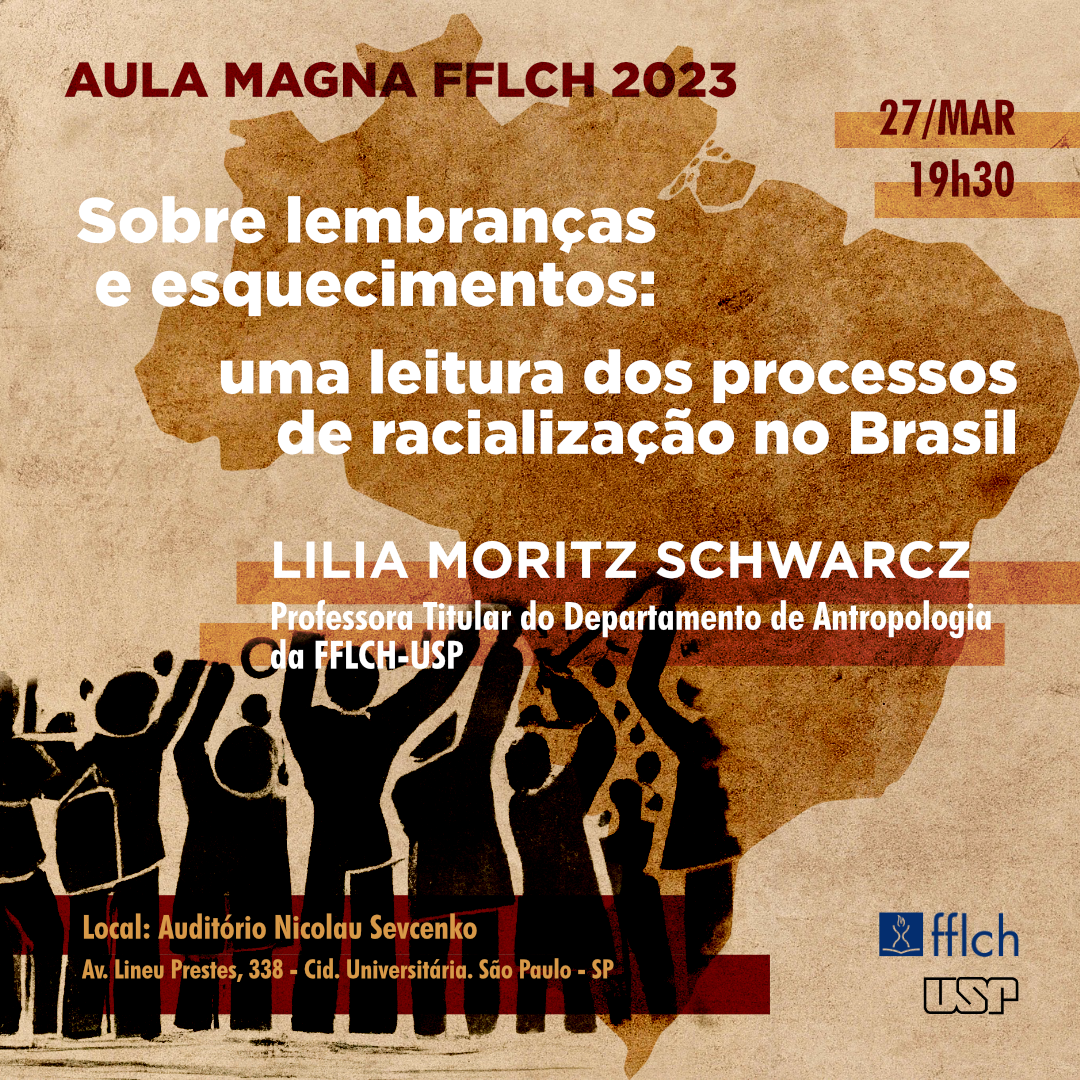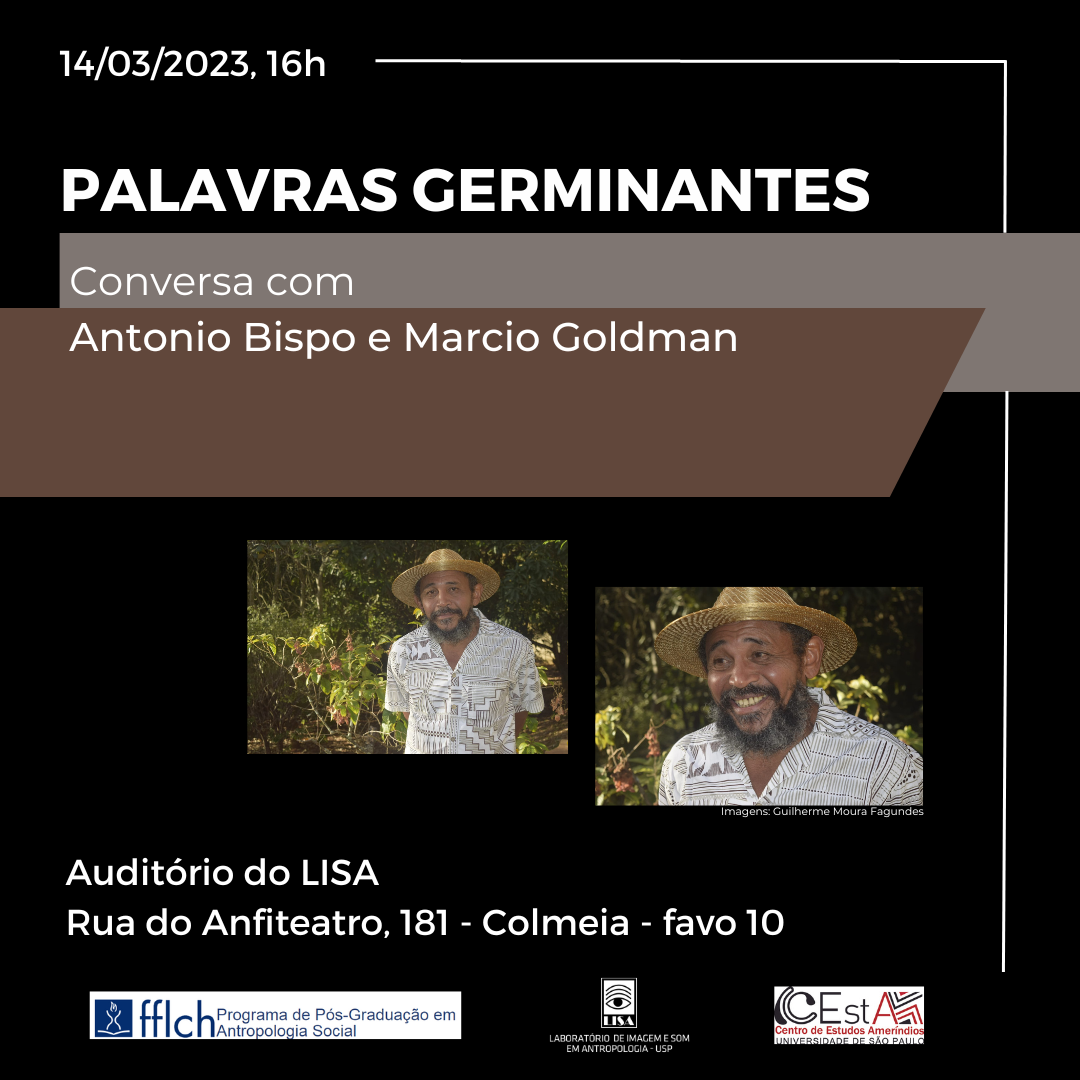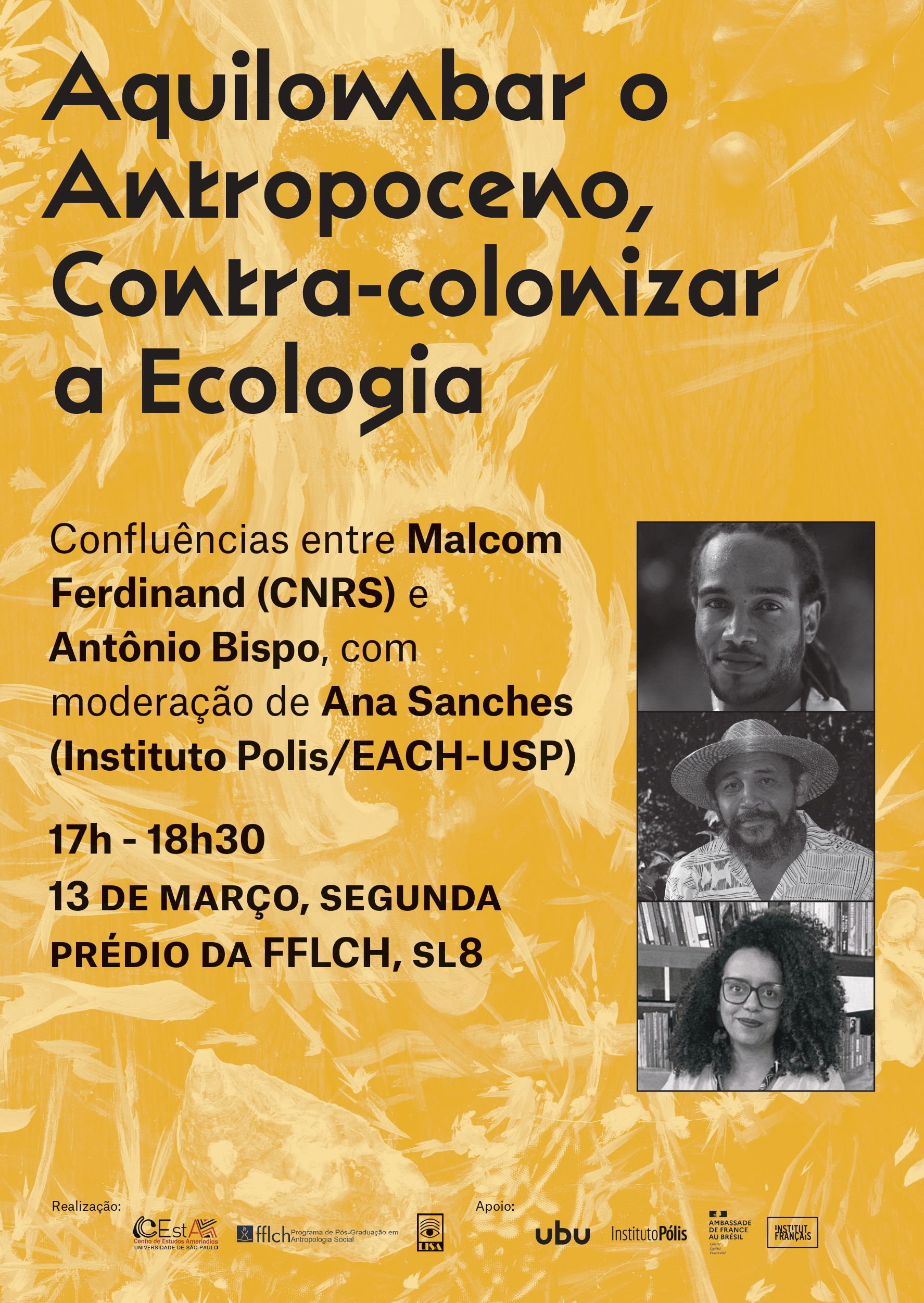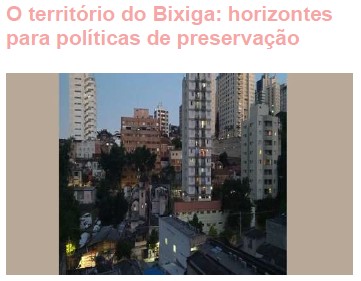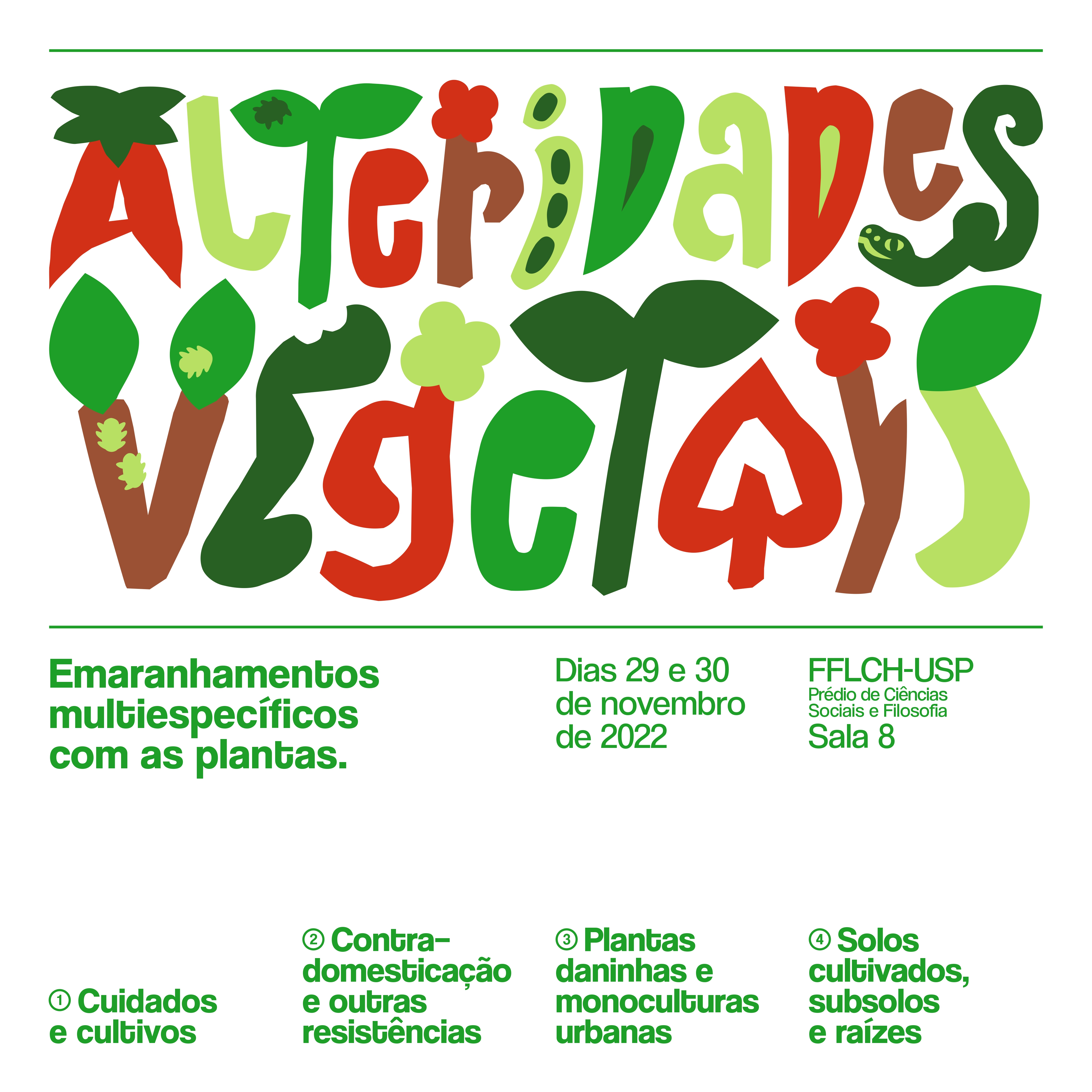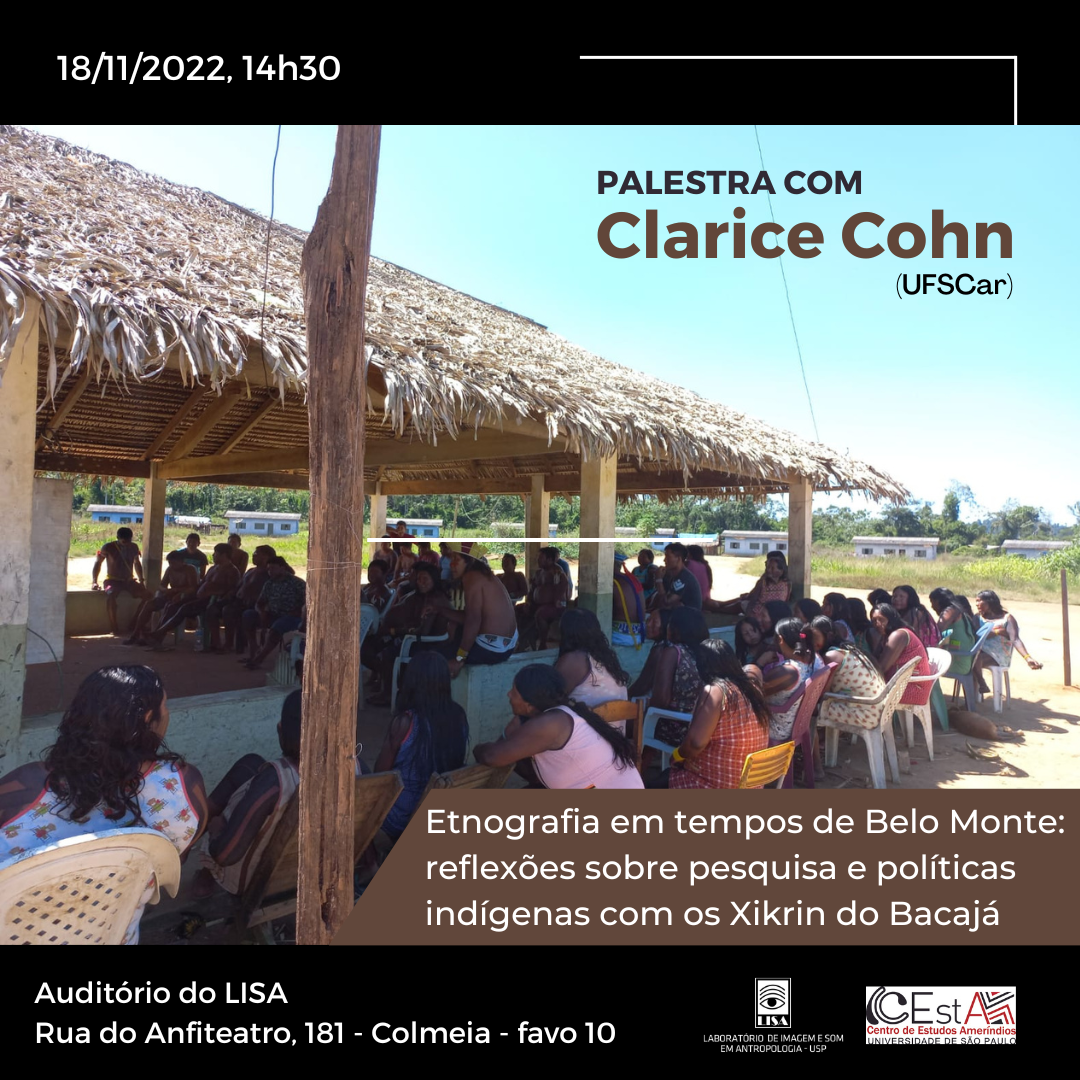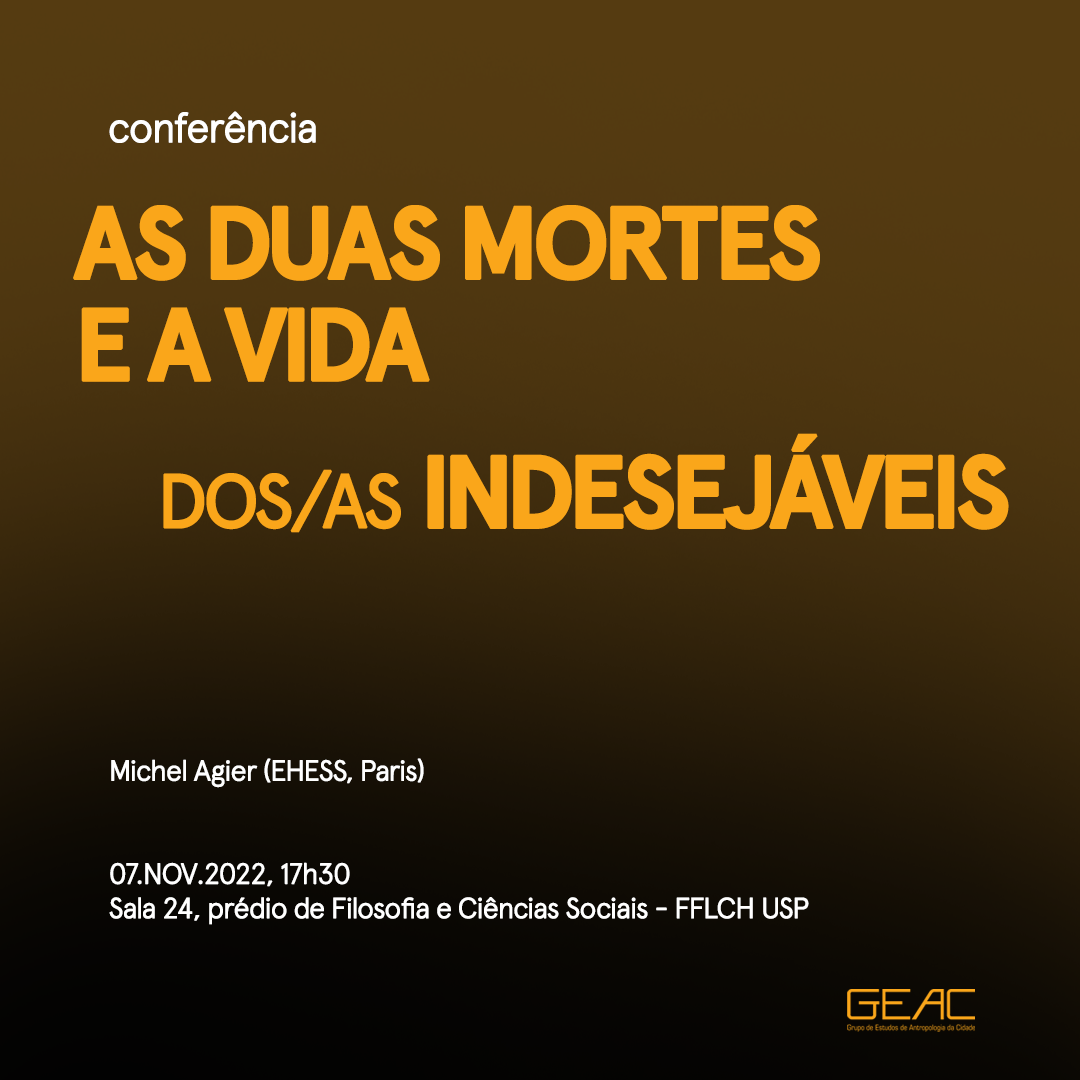Events
VII Nimuendaju Conference, with João Paulo Lima Barreto (UFAM) - Duhkewehtise and Sutiwehtise: The ways of transforming the body.
FAGUNDES, Guilherme moura. 2019. “Pirotécnicas, piropolíticas e suas dinâmicas vitais” (pp. 54-71) e “Antes era manejo do gado, agora é manejo do fogo” (pp. 379-405). In: Fogos gerais: transformações tecnopolíticas na conservação do Cerrado (Jalapão-TO). Doctoral thesis. Graduate Program in Social Anthropology at the University of Brasilia
_____. 2017. Another Fire. Ethnographic film. 21 min.
Additional references
EMPERAIRE, Laure . 2005. “Agricultural biodiversity in the Brazilian Amazon: resource and heritage”. In: Intangible Heritage and Biodiversity. Special issue of the National Historical and Artistic Heritage Institute Magazine, n 32: 31-43.
FERDINAND, Malcom . 2022. A decolonial ecology: thinking from the Caribbean world. São Paulo: Editora UBU.
FERRET, Carole . 2014. “Towards an anthropology of action: From pastoral techniques to modes of action.” Journal of Material Culture, Vol. 19(3), p. 279–302
HAUDRICOURT, André - Georges. 2013 [1962]. “Domestication of animals, cultivation of plants and treatment of the other” Series Translation n. 7, PPGAS/DAN.
HUI, Yuk . 2017. Cosmotechnics as cosmopolitics. In: Technodiversity. São Paulo: UBU.
PYNE, Stephen J. 2021. The Pyrocene: How We Created an Age of Fire, and What Happens Next. California: University of California Press
About memories and forgetting: A reading of racialization processes in Brazil.
3/14
Table 1 - Cultural dynamics in the city: knowledge and practice networks
With Heitor Frúgoli Jr. and Egbome Jennifer from Xangô.
3/16
Table 2 - Flows in the city: multiethnic mosaic of Bixiga
With Sheila Schneck and José Adão de Oliveira.
Mediation: Michel Françoso
More details at https://
Realization:
Center for Amerindian Studies (CestA) FFLCH-USP
Graduate Program in Social Anthropology (PPGAS-USP)
Laboratory of Image and Sound in Anthropology (LISA-USP)
Support:
● Publisher UBU
● Ambassade of France to Brazil
● Institut Français
● Polis Institute
The forum brings together anthropology and philosophy researchers to extract
developments of the book “A decolonial ecology: thinking from the Caribbean world”, by
Malcolm Ferdinand. Two round tables will be dedicated to the main concepts and
issues of the book, composing a repertoire that articulates themes such as the racial issue,
Anthropocene, quilombola ecologies, Caribbean world, environmentalism and cosmopolitics. The
event ends with a conversation between Malcom Ferdinand and the thinker and farmer
quilombola Antônio Bispo.
[Monday, 03/13/2023]
Session 1 (10am – 12pm). Moderation: Stelio Marras (IEB/USP)
Location: LISA Auditorium
(The forum will not be simulcast, but the recording will be available on the
BASKET.)
(15min) Guilherme Fagundes (USP) – The double racial divide
(15min) Rodrigo Bulamah (UNIFESP) – From Gaia to Ayiti
(15min) Karen Shiratori (CESTA/USP) – From the Anthropocene to the Negrocene
(15min) Igor Scaramuzzi (Iepé/CPI-SP) – Quilombola Ecologies
Debate – 11am-12pm.
Session 2 (2pm – 4pm). Moderation: Renzo Taddei (UNIFESP)
Location: LISA Auditorium
(15min) Eraldo Souza dos Santos (Université Paris 1 Panthéon-Sorbonne) – Ecology and
civil disobedience
(15min) Henyo Barreto (UnB/ Wageningen University) – Noah's ark on the pier
afropindoramic
(15min) Alyne Costa (PUC-Rio) – Taking care of fractures between Earths and worlds
(15min) Renato Sztutman (USP) – Decolonial Ecology as Cosmopolitics
Debate – 3pm-4pm.
Break. 4pm-5pm
Session 3 (17:00 – 18:30). Moderation: Ana Sanches (Instituto Polis/EACH-USP)
Location: Political Science Room 08 - FFLCH
Confluences between Malcom Ferdinand (CNRS) and Antônio Bispo (Quilombo do Saco-
Tannery, PI)
Conference Link: https://www.youtube.com/watch?v=7RCuzE6b83k
2/14
Table 1 - Thinking about the city: public authorities and communities
With Amelinha Teles and Raquel Schenkman.
2/16
Table 2 - Preserving the city: territories and heritage
With Raquel Rolnik and Luciana Araújo.
Mediation: Michel Françoso.
More details at https://centrodepesquisaeformacao.sescsp. org.br/atividade/o-territorio-…
The objective of the Alteridades Vegetais event is to bring together researchers, indigenous and non-indigenous, from different areas of knowledge of human sciences interested in plant life and its multispecific entanglements. The so-called "vegetable interactions" make room for innovative and interdisciplinary approaches that invite us to experiment with other thoughts and epistemologies, with a view to making room for new conceptual tools, less centered on humanity as its paradigmatic figure. The event aims to encourage discussions that depart from other-than-human socialities, in particular, from the agencies of plant beings in order to weave alliances in the face of the current deepening of the environmental and climate crisis.
Ethnography in the times of Belo Monte: reflections on indigenous research and policies with the Xikrin do Bacajá
Since 2009, I have been following the Xikrin do Bacajá in their work regarding the construction of the Belo Monte Hydroelectric Power Plant, which impacts its river, a tributary of the Xingu River in its Volta Grande, where the so-called Reduced Flow is located. of the work. With the drought of the Xingu, Bacajá has also dried up, impacting their lands and their lives. The lecture covers two main points: the first, which can be defined as methodological, deals with the impacts on the anthropologist's relationship with this people, which completes three decades, having effects on ethnographic work; I argue that, in addition to the kinship I experienced until then, through which they dedicated themselves to changes in my body, in my diet, and in teaching efforts so that I could effectively learn and be a voice for those who do not usually hear them, I started to to experience with them, in the face of countless defeats and struggles, an alternation between kinship and enmity, which I seek to demonstrate to be the type of alterity relationship that defines them, in doing themselves and others, sometimes Mebengokré, sometimes enemies. In the second, which is directly linked to the first by their expectation that I could act as their partner, I deal with the way in which they move from war to politics, in their confrontations with the State, the entrepreneur and her outsourced services, the MPF , among others, from the licensing process to the operation of the plant, reflecting on the different ways of doing politics and a reflection, with them, on the limitations of the policies of the kuben, the non-indigenous, who fail to listen to them and are ineffective in responding to their demands. Therefore, from the limitation in admitting indigenous knowledge about the impacts on the rivers and their lands, to the way these bodies have acted, passing through ethics in politics, I accompany the Xikrin in their new perceptions of what the State and politics are. non-indigenous people, and how they have been working to reinvent a warlike way of doing politics.
Michel Agier, anthropologist and research professor at the École des Hautes Études en Sciences Sociales (EHESS), will deliver a conference whose focus, on African refugees and migrants in Europe, is based on long-term research. It will be on 11/7/2022, Monday, at 5:30 pm, in room 24 of the Philosophy and Social Sciences building (event promoted by GEAC-USP).


